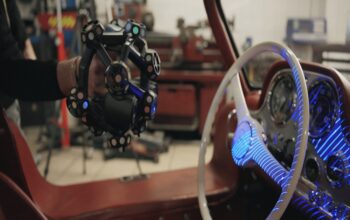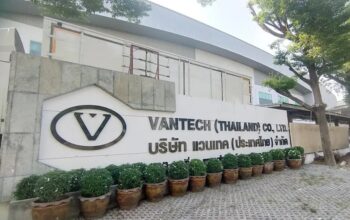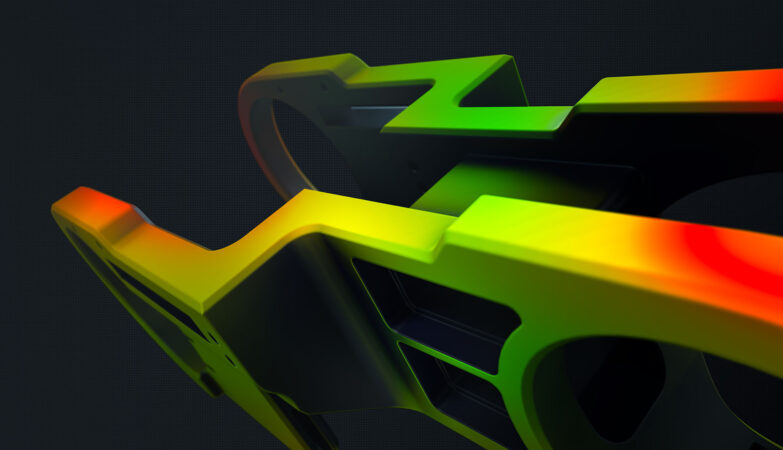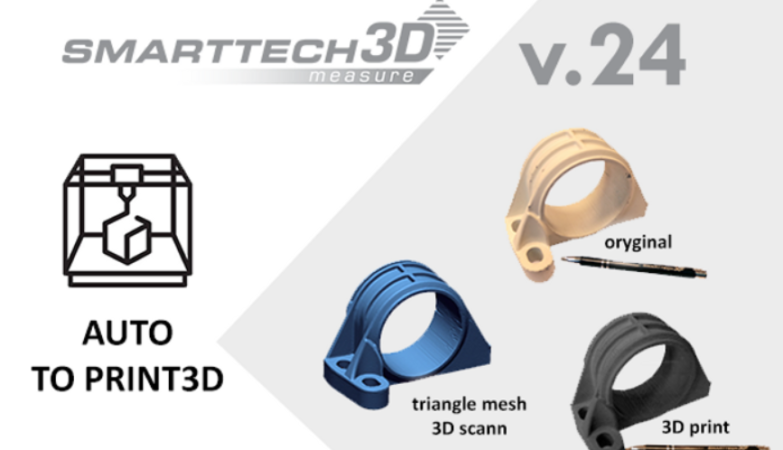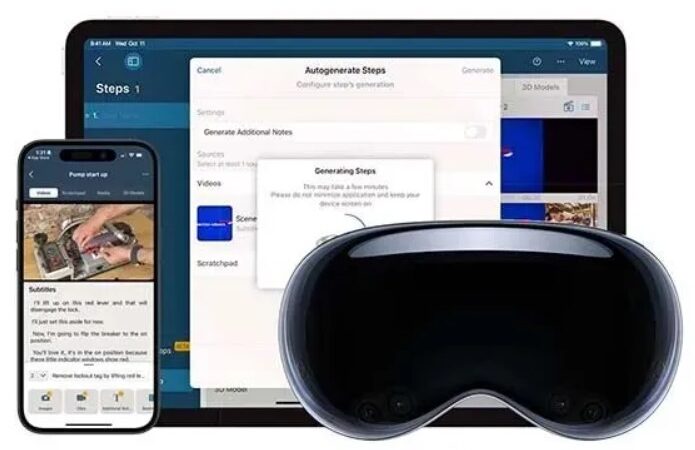PC gaming is fortunate to be backed by a massive modding community. From characters and gameplay mechanics to entirely new areas, these modders often develop downloadable content (DLC) that breathes fresh life into their favorite titles, purely out of a passion for gaming.
This is how things started for Frederic Leifeling and his 3D artist team from the town of Hopsten, Germany. When they first discovered Farming Simulator, they found that it brought together their shared interests in gaming, engineering, and ultimately, 3D modeling. What began as a modding hobby quickly turned into a business – and in 2016, they founded Creative Mesh.
With Frederic at the helm, the company has gone from strength to strength, making models for other popular titles, and launching its own digitization services.
But having established close ties with developer GIANTS Software, Farming Simulator remains Creative Mesh’s top priority. Aiming to build on its hit ‘Straw Harvest’ DLC, Frederic recently had a brainwave: Why not bring fire engines into the world of virtual farming?

As a volunteer firefighter himself, the firm’s CEO already had access to relevant equipment, and an intimate understanding of firefighting tasks. But there was a problem: How do you quickly, accurately digitize huge fire trucks, as well as the specialized equipment like spreaders and shears needed for rescues? The answer: Artec Leo and Artec Ray II.
Turning up the heat with 3D scanning
One of the main roadblocks to automotive digitization is access. With the original design files, vehicle modeling is far more straightforward. But CAD data is difficult to source, and even in cases where you do have it, missing details and placeholders can make it unfit for purpose.
Creative Mesh’s previous workaround saw its team either use images as visual references for 3D sketching, or a photogrammetry kit for machinery and tractor capture. However, Frederic says this only allowed them to pick up basic dimensions, and the sheer number of photos required for the latter meant they were “soon at the very limit” capacity-wise.
In an effort to develop more realistic video game models and cut lead times, they reached out to long-term partner GIANTS Software, whose team had used 3D scanning for a while. Convinced of its workflow-accelerating potential, Creative Mesh then contacted Artec Ambassador KLIB, who offered them a live demo of the world’s first wireless, AI-powered 3D scanner: Artec Leo.

Comparing Leo data capture to that of a point-and-shoot digital camera, Frederic said they were “absolutely blown away” by both its intuitiveness and accuracy. This prompted his firm to acquire the device, and after just a day’s training, its team were able to scan straight away.
“It’s always rewarding to help innovators overcome technological challenges. But this is especially true when they’re as enthusiastic as Frederic and his team,” said KLIB CEO Knut Lehmann. “After a brief training session, it was obvious that Leo was the right tool for the job – its speed and ease of use offered a clear step up from what they’d been using before.”
After digitizing some small machinery, however, they ran into issues when stitching together scans of larger vehicles, finding it possible but time-consuming. To fully realize 3D scanning’s benefits, Frederic worked out that they also needed a long-range solution: Artec Ray II.

Pairing Leo & Ray II has since proven a masterstroke. Leo’s flexibility has allowed his team to capture two fire trucks in fine detail – using Ray II to digitize the wider scene in a single swoop – before turning them into ultra-high-resolution video-game-ready models.
With real-time feedback via Leo’s built-in display, they were also able to ensure complete data capture well ahead of processing. Later on, it digitized equipment so fast that engineers didn’t even need to remove anything from site, saving them a lot of bureaucratic effort.
“Capturing such huge vehicles was tough,” said Frederic. “Alongside this, everything was starting to evolve and some other use cases popped up. This got us talking about Artec Ray II, and I have to tell you, it combines very, very nicely with Artec Leo.”
“We also capture old, specialized equipment for Farming Simulator where no digital information exists. So having these 3D scanning capabilities is a great advantage.”
“Multi-resolution’ video game models
Artec Studio is at the very heart of Creative Mesh’s video game modeling workflow. Utilizing the powerful 3D data capture and processing platform, it’s possible to fuse incredibly detailed datasets captured via multiple scans, and maximize mesh resolution in a single click.
In particular, Frederic praises the level of texture retained during the process. Essentially used for reference during 3D modeling, he says resulting meshes feature colors that make fine details easier to spot. Frederic also hails Artec Studio scan decimation for removing frames to lighten files, adding his team “never has issues with compatibility” – making export a piece of cake.

After mesh optimization, Creative Mesh models with an array of software, including Autodesk Maya, Autodesk 3ds Max, Blender, and Adobe Substance Painter – for ultra-realistic PBR texturing. There, its team of 3D artists can begin sketching models, using not only geometry data but baked-in textures as a guide.
“Our reference files are now so good, we can see everything in full-color, in a 3D space,” added Frederic. “Compared to modeling based on images, we can basically rush things through. Our lead times are at least one third shorter.”
The results are there for all to see. Their DLC, complete with models of two fire trucks (captured right down to their ladder rungs and reflective paint jobs), as well as hose and traffic cart gear, is now live. For added realism, it even includes crashed car models that would be impossible to replicate any other way – so it’s no surprise that it has been met with acclaim.
“In Europe, a lot of farmers are actually volunteers in the fire brigade. That’s why we decided to add this new way of playing Farming Simulator in the first place,” explained Frederic. “When we released the pack, we ended up activating this whole sleeper community. Our discord channel numbers pretty much doubled, it was crazy!”
Expanding into new virtual worlds
In the fast-moving world of video game modeling, there’s no room for standing still, and Creative Mesh is already working on various other projects. Since launching a Farming Simulator map inspired by Netflix’s popular Rebel Moon films, its team have delved into new areas with Artec Leo & Ray II, digitizing two turboprops inside and out, for PC classic Microsoft Flight Simulator.

As they continue improving their 3D data capture technique, Frederic anticipates making further lead time gains – between scanning fire trucks alone, he says they made a “huge step forward” – getting 70% faster. In future, he adds that Creative Mesh plans to roll out even more models, including that of a vintage tractor, as well as explore 3D scanning’s wider potential.
“We definitely want to broaden our offering,” concluded Frederic. “We’re keen to use all our experience with the technology to provide services to other companies. This could mean capturing anything from architectural scenes to creating digital worlds.”



